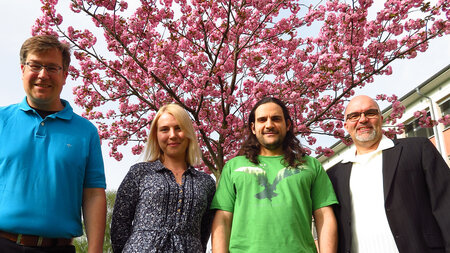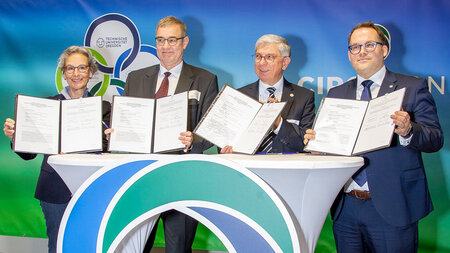SYNCAR
Synchronized Automated Driving in Urban Areas
Partners
IAV GmbH Ingenieurgesellschaft Auto und Verkehr
Fraunhofer-Institut für Verkehrs- und Infrastruktursysteme Dresden (IVI)
Preh Car Connect GmbH
dresden elektronik verkehrstechnik gmbh
FSD Fahrzeugsystemdaten GmbH
FusionSystems GmbH
TU Dresden (Fahrzeugmechatronik / Verkehrsleitsysteme)
TU Chemnitz Professur für Arbeitswissenschaft und Innovationsmanagement & Professur für Nachrichtentechnik
Funding

SächsischeAufbaubank (Development Bank of Saxony)
Duration
09/2016-09/2019
Topic
One of SYNCAR's objectives is the development of innovative solutions for anticipatory automated driving that take the cooperation with other road users and with light signal systems into account. Additionally, this results in a novel approach on traffic optimization by means of providing specific driving recommendations (maneuver recommendations) for groups of vehicles or individual vehicles. The developed procedures and functions for the vehicle and the infrastructure will be prototypically implemented in several exemplifying use cases and demonstrated in pilot drives on (partly) public roads in order to support both automated and conventional vehicles in urban areas.
The functions are based on the complementary usage of current mobile communication technologies, such as mobile and edge-cloud solutions, with innovative roadside cloud services. In order to draw conclusions regarding the extension of future urban infrastructures for traffic and communications, the developed approaches are demonstrated and examined in the digital test field for autonomous driving in Dresden/Saxony.
The Professorship of Cognitive and Engineering Psychology (AAP) works closely together with the Professorship of Ergonomics and Innovation management (AwI) to examine questions regarding acceptance and ergonomics in Human-Vehicle-Interactions. Both the passengers in a highly automated driving vehicle as well as surrounding traffic participants are of interest. The goal is, among others, to develop HMI concepts that involve other traffic participants, who support the cooperative driving, and to create specific driving recommendations. Both professorships scientifically accompany the development of different operating functions (especially monitoring driving functions, destination and route selection) and evaluate the developed HMI-solutions.
| Contact | M.Sc. Cornelia Schmidt |
|---|





